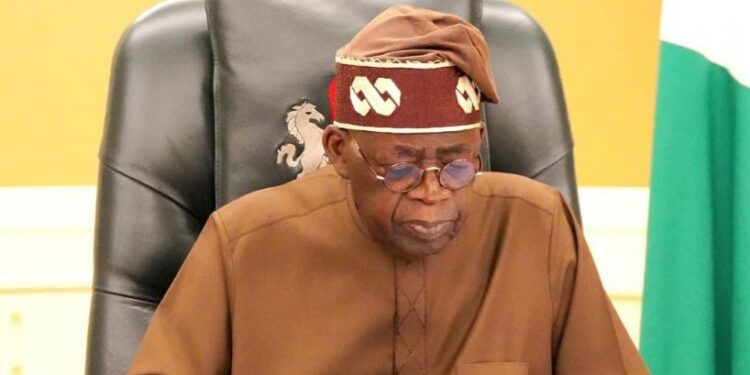President Bola Tinubu has reiterated Nigeria’s commitment to adopting climate-smart agricultural practices to enhance food security and address environmental challenges.
Speaking at the Abu Dhabi Sustainability Week in the UAE, President Tinubu highlighted Nigeria’s leadership role in driving a just energy transition and sustainable development in Africa. His address, titled “Climate Imperatives into Economic Prosperity: Bridging Africa’s Global Energy Future”, emphasized the urgency of international collaboration to combat climate change.
“As Africa’s most populous nation and one of its largest economies, Nigeria recognizes its responsibility to lead on these critical issues. We must innovate, collaborate, and take decisive action as a global community,” Tinubu stated.
Key Initiatives for Sustainability
The President outlined Nigeria’s three sustainability pillars: energy transition, climate resilience, and sustainable development. He noted that the government is implementing climate-smart agriculture to boost food security while reducing environmental impacts.
Tinubu also unveiled policies like the National Clean Cooking Gas Policy, aimed at promoting clean energy and driving socioeconomic development.
“Our energy transition strategy prioritizes reducing dependence on fossil fuels, diversifying energy sources, and advancing clean alternatives like compressed natural gas and electric vehicles,” he said. Tinubu reaffirmed Nigeria’s commitment to achieving net-zero emissions by 2060.
Tackling Environmental Challenges
President Tinubu drew attention to Nigeria’s pressing environmental issues, including deforestation, desertification, coastal erosion, flooding, and pollution. He cited the shrinking Lake Chad as a critical concern, threatening livelihoods in affected communities.
“Our government collaborates with local communities to implement solutions that build resilience against these challenges,” he said.
Green Financing and Global Collaboration
Tinubu highlighted Nigeria’s pioneering role in green financing, noting the country’s status as the first in Africa to issue Sovereign Green Bonds to fund eco-friendly projects. The third issuance of these bonds is currently underway.
“We urge investors to partner with us as we build a sustainable, prosperous, and equitable future,” he appealed.
Tinubu also emphasized the importance of global partnerships and technological innovation in addressing environmental challenges. He noted Nigeria’s growing adoption of clean energy, water conservation, land restoration, and waste management technologies, along with advancements in AI-driven agricultural practices.
A Call for Collective Action
President Tinubu underscored the shared responsibility of nations to combat climate change, advocating for regional and global cooperation to meet Sustainable Development Goals.
“Our challenges are shared worldwide, and practical solutions require collective action grounded in mutual respect and a shared vision,” he asserted.
Gratitude and Reflection
In closing, Tinubu expressed gratitude to UAE President Sheikh Mohammed bin Zayed Al Nahyan for hosting the summit and reflected on the symbolic image of children raising the UAE flag at the event.
“This serves as a reminder of our responsibility to build a sustainable world for future generations,” he said.
The summit drew participation from global leaders, including the Prime Ministers of Italy, Rwanda, Malaysia, New Zealand, and Finland, among others, fostering dialogue on global sustainability challenges and solutions.
























